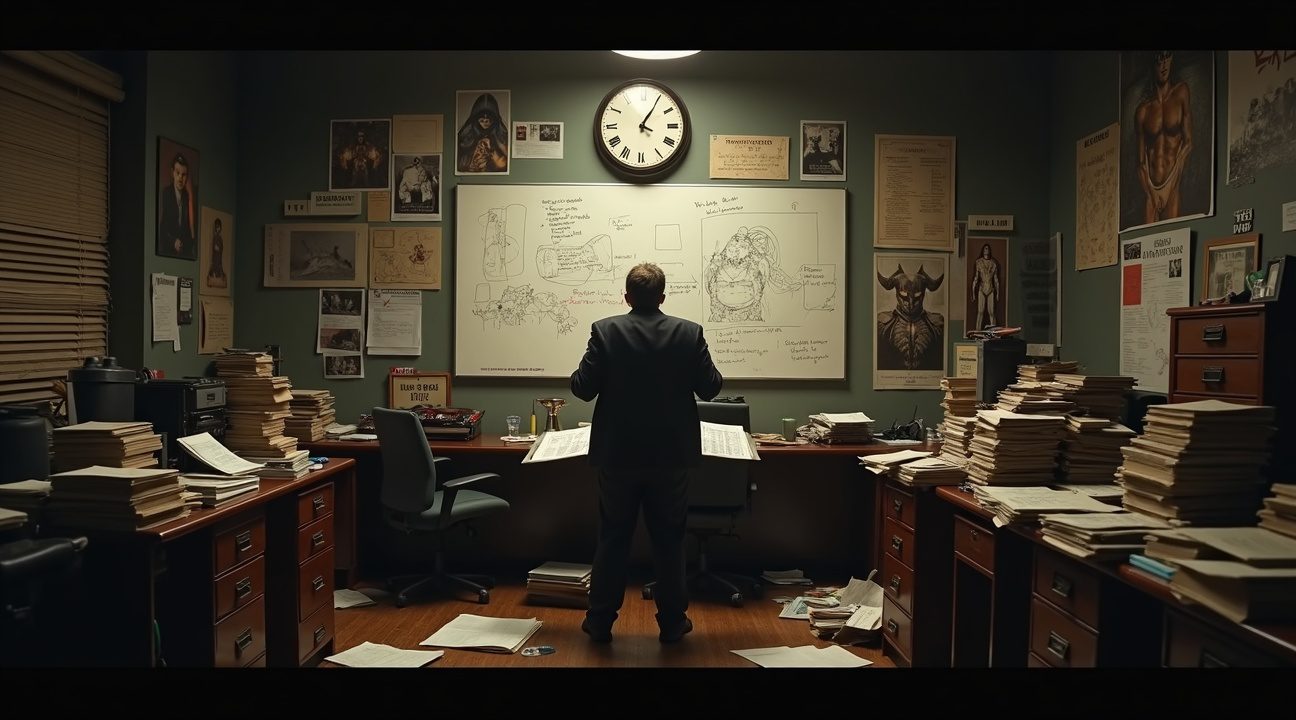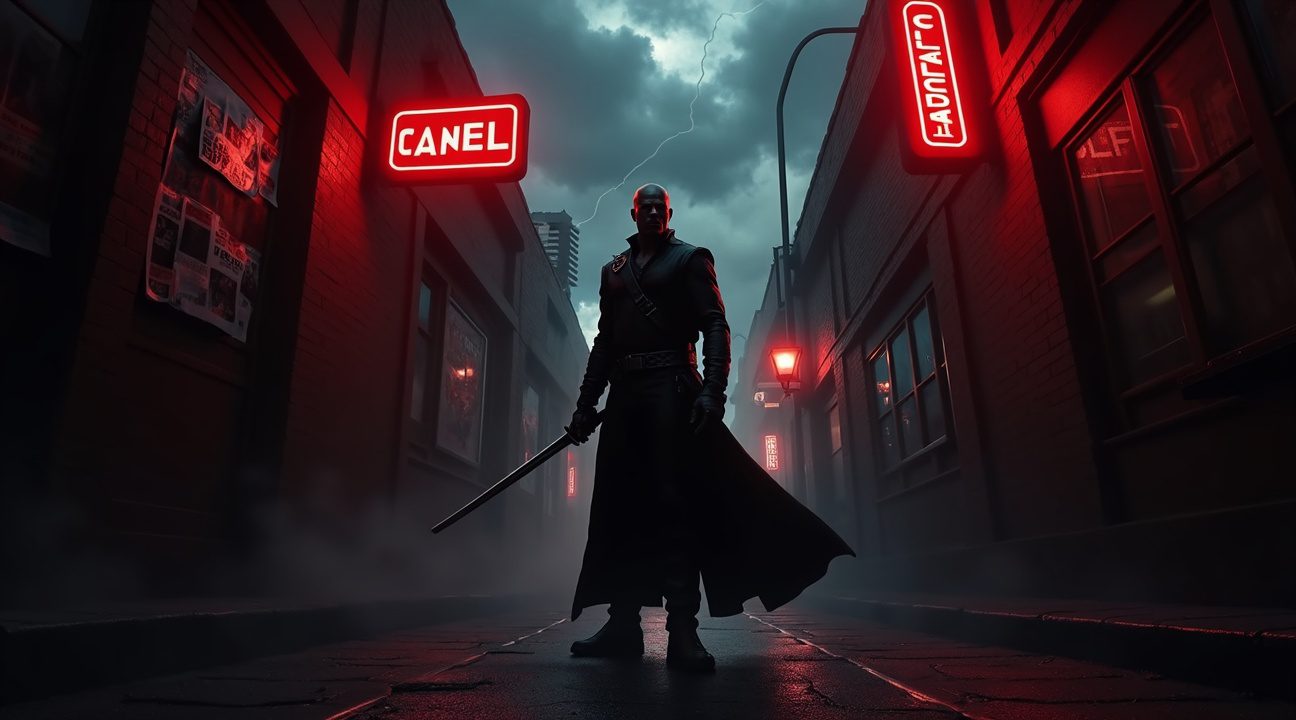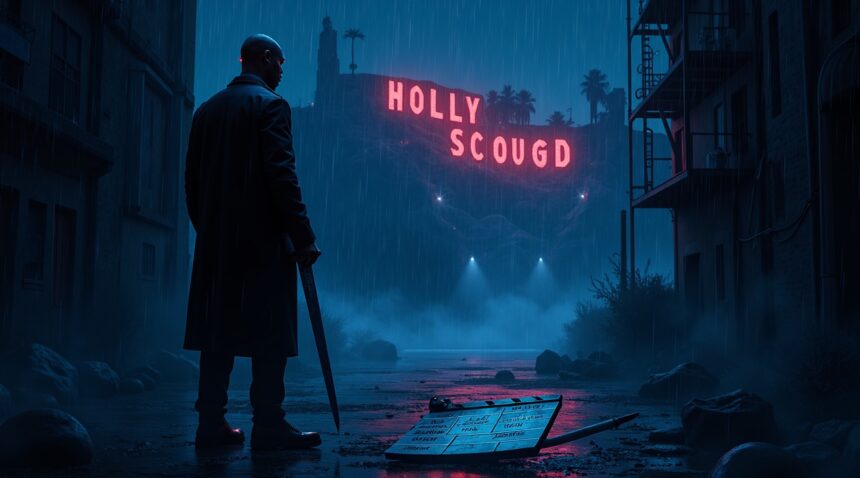Disney officially removed “Blade” from its 2025 release calendar in October 2024, ending a lengthy and challenging development period marked by multiple director exits and repeated script overhauls.
Key Takeaways
- Blade removed from schedule: Disney pulled “Blade” from its November 7, 2025 release slot and replaced it with “Predator: Badlands”, leaving the Marvel reboot without a new release date
- Ongoing production issues: The film endured major setbacks, including the departures of two directors—Bassam Tariq in 2022 and Yann Demange in June 2024—and input from over seven different screenwriters
- Mahershala Ali’s status: The Oscar-winning actor remains committed to the role of Blade, with reports suggesting he could appear in future ensemble MCU projects such as “Midnight Suns” or “Avengers: Secret Wars”
- Development timeline: The reboot was first revealed with much excitement during San Diego Comic-Con 2019, but persistent creative disagreements and growing budget constraints led to its indefinite shelving
- Fan and cast reactions: Wesley Snipes, who originally portrayed Blade, shared his thoughts on the cancellation via social media, while fans lament the loss of a character seen as foundational to the growth of modern superhero films
Disney Officially Removes Blade from 2025 Release Schedule After Years of Development Hell
Disney dealt a significant blow to Marvel fans in October 2024 when the studio officially removed Blade from its 2025 release schedule. The November 7, 2025 slot that was earmarked for the vampire hunter’s return has been reassigned to Predator: Badlands from 20th Century Studios, effectively pushing the long-awaited project into an uncertain future.
The journey for this Marvel Cinematic Universe reboot began with considerable fanfare at San Diego Comic-Con in 2019, where Mahershala Ali was announced as the new Blade. The Academy Award-winning actor was set to take on the iconic role of the vampire hunter, replacing Wesley Snipes who portrayed the character in the original trilogy from 1998 to 2004. Marvel’s announcement generated massive excitement among fans who had been waiting years for Blade’s return to the big screen.
The film’s troubled timeline tells a story of constant delays and setbacks. Originally scheduled for release on November 3, 2023, the project faced numerous obstacles that forced Marvel Studios to push the premiere date to November 7, 2025. However, even this extended timeline proved insufficient as the studio ultimately decided to remove the film from their calendar entirely.
Production Challenges and Current Status
As of mid-2025, production on Blade remains stalled with no clear indication of when filming might resume. The project has experienced what industry insiders describe as “development hell,” a term used when films face prolonged delays due to creative differences, script issues, or production complications. Several factors have contributed to the film’s troubled status:
- Multiple director changes have disrupted the creative vision
- Script rewrites have repeatedly delayed pre-production
- Scheduling conflicts with Mahershala Ali’s other commitments
- Budget concerns amid Disney’s recent cost-cutting measures
- Technical challenges in bringing the vampire mythology to the MCU
The absence of a formal statement from Marvel Studios has left fans wondering whether the project has been permanently shelved or simply postponed indefinitely. Industry analysts suggest that the studio may be reassessing the character’s place within the broader MCU timeline, especially given the interconnected nature of Marvel’s cinematic universe.
The removal of Blade from Disney’s release schedule represents more than just another delayed superhero film. It signals potential shifts in Marvel’s strategic approach to darker, more mature content within their family-friendly brand. The character’s violent nature and R-rated source material present unique challenges for a studio that has built its success on accessible, broad-appeal entertainment.
Mahershala Ali’s attachment to the project remains one of the few constants in this ever-shifting landscape. The actor has expressed his commitment to the role in various interviews, though he has also acknowledged the challenges facing the production. His star power and critical acclaim continue to generate hope that the project will eventually find its footing.
The reassignment of Blade’s release date to Predator: Badlands demonstrates Disney’s confidence in other franchises while highlighting the company’s willingness to sacrifice troubled projects. This decision reflects the studio’s pragmatic approach to managing their extensive slate of upcoming releases.
Marvel fans have also speculated about potential video game adaptations filling the void left by the stalled film project. Gaming platforms often provide alternative avenues for exploring beloved characters when film productions face difficulties.
The future of Blade in the MCU remains uncertain, with no new release date announced and production showing no signs of resuming. While Marvel Studios hasn’t issued a formal cancellation notice, the complete removal from their release schedule suggests significant challenges that may take considerable time and resources to resolve. Until the studio addresses these fundamental issues, fans will continue waiting for the daywalker’s return to theaters.
Two Director Departures and Seven Screenwriters Signal Creative Chaos
The Blade project’s production history reads like a masterclass in how not to develop a superhero film. I’ve witnessed many troubled productions over the years, but the sheer scale of creative upheaval surrounding this vampire hunter’s return stands out as particularly chaotic.
Director Musical Chairs Creates Instability
Bassam Tariq’s departure in 2022 marked the first major red flag for the production. Creative differences—Hollywood’s polite way of saying fundamental disagreements about the film’s direction—forced his exit after months of development work. The situation worsened when Yann Demange followed suit in June 2024, creating an unprecedented pattern of directorial instability for an MCU project.
Marvel’s director search became increasingly desperate as industry insiders began questioning the project’s viability. Rumors swirled about potential replacements, including speculation that Chad Stahelski might step in, though these reports were later debunked. The studio found itself in the unusual position of needing to convince established filmmakers to tackle what many perceived as a cursed production.
The script underwent constant revision with over seven different screenwriters attempting to crack the story. This revolving door of writers created a fragmented creative vision that couldn’t establish consistent tone or narrative direction. Each new writer brought fresh perspectives, but also reset progress already made, creating an endless cycle of development.
Marvel Studios recognized the severity of these issues in 2023, making the bold decision to completely overhaul the project. This creative restart essentially threw away years of development work, acknowledging that the existing approach wasn’t salvageable. The studio’s willingness to start from scratch demonstrated both the project’s fundamental problems and their commitment to eventually getting it right.
Most MCU films follow a predictable development pattern—typically undergoing 2-3 script rewrites and maintaining director stability throughout production. Directors rarely depart Marvel projects once attached, making Blade’s double director exodus particularly noteworthy. The average MCU film moves from development to release within 2-4 years, but Blade languished for over six years without reaching production.
Gaming adaptations have emerged as alternative ways to explore the character while the film remains stalled. The extended timeline suggests deeper issues than typical pre-production challenges, pointing to fundamental disagreements about the character’s place within the broader MCU framework.
This level of creative chaos typically signals either an impossible-to-execute concept or significant internal conflicts about the project’s direction. Given Marvel’s track record with complex characters, the latter seems more likely, suggesting that competing visions for Blade’s MCU integration created irreconcilable differences that ultimately doomed the production.

Mahershala Ali’s Academy Award-Winning Casting Now in Limbo
Mahershala Ali’s casting as Blade generated tremendous excitement among fans and industry observers alike. The Academy Award-winning actor brought immediate credibility to the project, with his proven dramatic range and commanding screen presence making him an ideal choice to reimagine the iconic vampire hunter. Fans anticipated a sophisticated, fresh interpretation of the character that Wesley Snipes had originally brought to life on the big screen in the late 1990s and early 2000s.
The film’s current status represents a significant missed opportunity for Marvel Studios on multiple fronts. From a creative standpoint, Ali’s involvement promised to elevate the character beyond its previous iterations, potentially bringing the same gravitas he demonstrated in films like Moonlight and Green Book to the supernatural corner of the Marvel Cinematic Universe. Financially, the delay means Marvel is postponing what could have been a lucrative franchise launch, especially given the character’s established fan base and Ali’s drawing power as a leading man.
Future MCU Appearances Remain Possible
Despite the standalone film’s uncertain future, Ali maintains his connection to the Blade character within the Marvel framework. Industry insiders have suggested that while the dedicated Blade movie faces indefinite postponement, the character could still appear in upcoming ensemble projects. Rodrigo Perez from The Playlist has indicated that Ali might reprise the role in future MCU ventures, including potential appearances in projects like Midnight Suns or the highly anticipated Avengers: Secret Wars.
This approach would allow Marvel to introduce Ali’s version of Blade to audiences without the pressure of carrying a standalone film. Such appearances could serve multiple purposes:
- Testing audience reception to this iteration of the character
- Providing supernatural elements to larger storylines
- Keeping Ali engaged with the role until circumstances allow for a proper solo outing
The strategy mirrors Marvel’s historical approach of introducing characters in ensemble pieces before giving them dedicated films.
The entertainment industry has also shown interest in the Blade property beyond just film adaptations. Reports suggest that gaming companies are exploring interactive versions of the character, indicating that the vampire hunter’s appeal extends across multiple entertainment mediums.
Ali’s attachment to the project, even in this uncertain state, demonstrates both his commitment to the character and Marvel’s recognition of his value to the franchise. His Academy Award pedigree adds legitimacy to what could be considered a niche supernatural property, potentially attracting audiences who might not typically engage with vampire-themed content. The actor’s ability to balance intensity with emotional depth would have brought new dimensions to Blade’s traditionally action-heavy narrative.
Marvel’s handling of this situation reflects broader challenges the studio faces in balancing creative ambitions with practical constraints. The company has experienced various production hurdles across multiple projects in recent years, making the Blade situation part of a larger pattern rather than an isolated incident. However, Ali’s continued involvement suggests that Marvel remains committed to eventually bringing this version of the character to screens, whether through a standalone film or as part of larger ensemble pieces.
The current limbo status means fans must wait to see Ali’s interpretation of the daywalker, but industry observers remain optimistic about the character’s eventual MCU debut. Whether that debut occurs in a dedicated film or as part of a larger superhero team-up remains to be seen, but Ali’s talent and Marvel’s investment in the property suggest that Blade will eventually find his place in the studio’s expanding supernatural roster.
Fan Disappointment and Wesley Snipes’ Public Commentary
The cancellation has struck a particularly painful chord with fans who recognize Blade’s foundational role in establishing the modern superhero movie landscape. The original 1998 Blade film starring Wesley Snipes earned over $155 million worldwide and maintains cult status among horror and superhero enthusiasts. This financial success proved that R-rated comic book adaptations could thrive at the box office, paving the way for future Marvel properties.
Wesley Snipes’ Social Media Response
Snipes himself hasn’t remained silent about the project’s troubled fate. The veteran actor has taken to social media platforms to share his thoughts on the cancellation, occasionally delivering pointed commentary about the production’s numerous setbacks. His posts often blend humor with subtle criticism, giving fans insight into his perspective on how Marvel has handled the character he brought to life decades ago. These public statements have resonated with longtime supporters who appreciate his candid approach to addressing the situation.
Industry Speculation and Future Possibilities
Industry insiders have begun speculating about Marvel’s potential pivot strategies following the Blade project’s collapse. Sources suggest the studio might be considering a Midnight Suns project that would feature supernatural characters including Ghost Rider, Elsa Bloodstone, and other horror-themed heroes. This ensemble approach could provide Blade with a fresh entry point into the Marvel Cinematic Universe while allowing the studio to explore its supernatural content through a different lens.
The cancellation has sparked broader discussions about Marvel’s commitment to horror-themed properties and darker content within its expanding universe. Fans worry that the studio’s shift away from R-rated material might limit future projects involving characters who traditionally operate in grittier storylines. Marvel finds director announcements have become increasingly scrutinized as audiences question whether these appointments will actually lead to completed films.
Additional concerns have emerged regarding how this setback might affect other supernatural characters waiting for their screen debuts. The vampire hunter’s troubled development cycle has created uncertainty about Marvel’s willingness to invest in similar projects that require mature themes and substantial budgets. Some industry watchers suggest that Ubisoft rumored Blade game projects might fill the void left by the cancelled film, offering fans alternative ways to engage with the character while Marvel reassesses its approach to supernatural storytelling.

Uncertain Future for Marvel’s Supernatural Universe Plans
Marvel Studios finds itself in an unusual position of uncertainty regarding their supernatural content strategy. The Blade movie’s troubled production represents more than just a single project’s failure—it signals potential hesitation about venturing into horror territory.
Marvel’s Shifting Genre Priorities
The studio’s typical approach involves carefully planned multi-phase storytelling, yet Blade’s cancellation breaks this pattern. Marvel has historically maintained tight control over project development, making this setback particularly notable. While Kevin Feige and his team haven’t completely ruled out supernatural content, they haven’t provided concrete alternatives either.
Industry observers note that Marvel’s focus appears to be shifting back to safer, proven formulas. The success of projects like Spider-Man and the Avengers franchise continues to drive studio decisions, potentially at the expense of riskier supernatural ventures.
Limited Revival Prospects
Speculation about Blade’s return remains just that—speculation. Some industry insiders suggest the character might appear in Disney+ series or as a supporting character in other films. However, these possibilities lack official confirmation from Marvel Studios.
The character’s future depends heavily on several factors:
- Finding a director willing to tackle the project’s existing challenges
- Securing Mahershala Ali’s continued commitment despite production delays
- Balancing R-rated content with Disney’s family-friendly brand image
- Competing priorities within Marvel’s increasingly crowded release schedule
Gaming industry rumors have also surfaced about potential Blade video game projects, though these remain unconfirmed and wouldn’t necessarily indicate film development progress.
Marvel’s silence on Blade’s status speaks volumes about their current priorities. The studio typically announces projects years in advance, yet no timeline exists for the vampire hunter’s return. This departure from their usual communication strategy suggests internal uncertainty about how to proceed with supernatural content.
The broader implications extend beyond just one character. Marvel’s retreat from horror elements could affect other planned supernatural projects, potentially limiting the MCU’s genre diversity. Without clear direction from studio leadership, Blade’s revival remains trapped in development limbo, leaving fans wondering if they’ll ever see the daywalker return to screens.
Sources:
IGN, “Disney Pulls Marvel’s Troubled Blade Movie Out of 2025”
GameRant, “The MCU Blade Debacle Is Marvel’s Biggest Disappointment”
SuperHeroHype, “What’s the Latest on Blade Getting Canceled?”
SuperHeroHype YouTube, “Blade Franchise – 7 Reasons Why It Went Wrong”
IMDb News, “Marvel’s New Blade Movie Gets Official Update Amid Cancellation”
YouTube, “BLADE Movie ‘DELAYED INDEFINITELY’ | WHY It’s …”
YouTube, “BREAKING BLADE OFFICIALLY CANCELED AT MARVEL …”
InsideTheMagic, “Wesley Snipes Shares ‘Cancel Mahershala Ali Blade …'”

